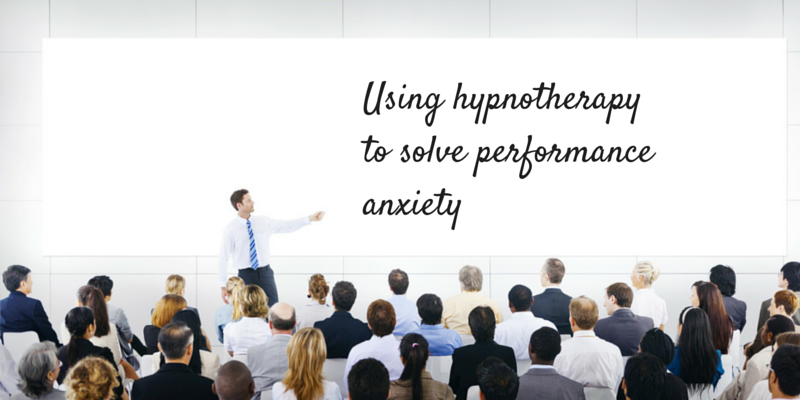Hypnosis in the Treatment of Anxieties, Fears and Phobias
Hypnosis in the Treatment of Anxieties, Fears and Phobias
 There has been a great deal of published research into the use of hypnosis with fears and phobias.
There has been a great deal of published research into the use of hypnosis with fears and phobias.
Occasionally, direct suggestions for relief of anxiety or phobias prove effective. When direct suggestions are ineffective, there are many other hypnotic techniques that may be helpful. Actually, simply the process of induction and deepening generally relieves anxiety.
Hypnotically-facilitated systematic desensitization, a Neurolinguistic procedure, is very helpful. The individual learns to gain a sense of internal control over the fearful or anxiety-producing trigger. Advantages of hypnotic desensitization over traditional behavioral desensitization include enhanced scene visualization and the ability to give posthypnotic suggestions to encourage behavioral responses to the situations that were imagined.
Mental rehearsal of successfully coping with tense situations is another method for treating anxiety and phobic disorders.
When low self-esteem is determined to be an aspect of the problem, ego-strengthening methods may be employed. Because hypnosis exploits the intimate connection between mind and body, it provides relief through improved self-regulation and also beneficially affects the experience of self-mastery.
Hypnosis may be used to age regress patients to experiences immediately before they began to feel anxious. In this way the sequence of reactions can be studied by the individual. This may aid in pinpointing the situations that elicit anxiety as well as the internal dialogue and imagery that evoke problematic responses. Age regression to times prior to the development of the phobia, when the patient was coping successfully, provide a resource state that can be anchored and brought to consciousness in times of high stress. Age regression in hypnotherapy provides access to identifying causative conflicts or past experiences that are beyond conscious awareness. When traumatic events are found to be associated with phobic reactions, it may be profitable to facilitate an age regression and abreact the feelings associated with the experience.
Hypnosis has proven effective in the management of preoperative and postoperative anxiety, including situations in which the patient is in a crisis period. This can also apply to the treatment of dental phobia. One common example of how hypnosis or hypnotherapy can be used to treat anxiety is in work with medical conditions and treatments that characteristically evoke significant anxiety. These include dental procedures, surgical and postsurgical situations, lumbar punctures and bone marrow aspiration, chronic headaches, cancer, burn pain, gastrointestinal disorders, nausea, respiratory disorders, tinnitus, and obstetrics/gynecology.
One example is reducing anxiety caused by Magnetic Resonance Imaging (MRI), a medical diagnostic procedure which requires a patient to lie in an enclosed space for about one hour. This enclosure induces panic and claustrophobic responses in up to 10% of patients undergoing the MRI procedure. There have been many failed diagnostic studies due to patient intolerance, claustrophobia and panic. Hypnosis has been used successfully to alleviate these reactions.
It is interesting to note that phobic patients have been shown to be, on average, more hypnotizable than others. The essence of the phobic experience is not unlike that of the event of hypnosis, and the phobic experience might be a spontaneously occurring panic-filled trance-like or dissociative experience. Hypnotherapy assists the patient to learn more about his dissociative capacity and to learn to control it.
Want to read more about how hypnotherapy can reduce anxiety? Here is a link from elsewhere on the web.
{{cta('25928eee-7127-4709-95ac-9704deaf2e34')}}








